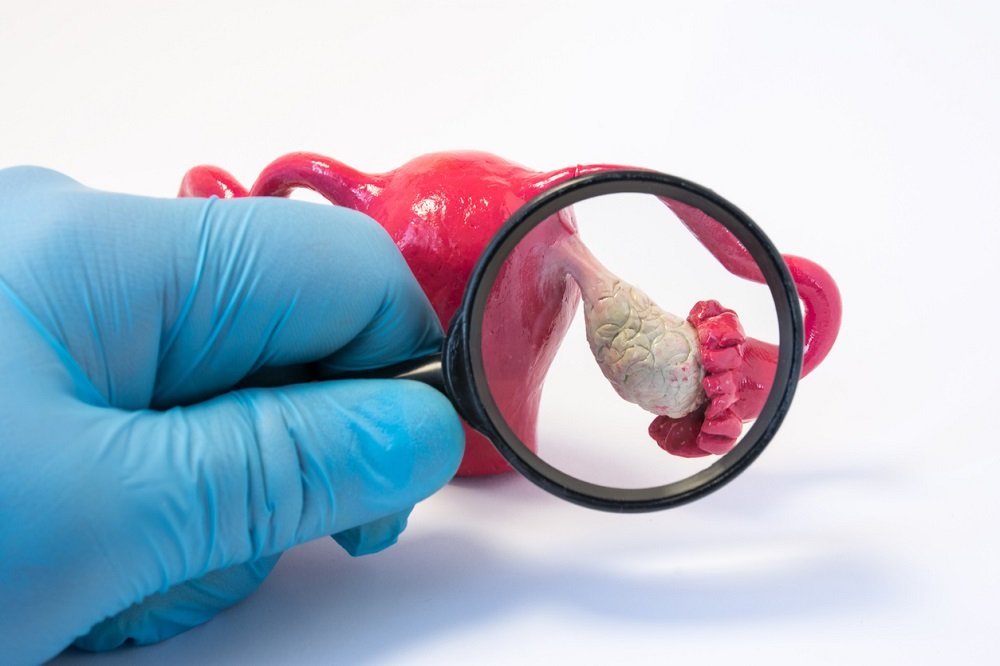Ovarian Cancer
Overview
What is the Ovarian Cancer?
Ovarian cancer refers to the cancerous growth that starts in the ovaries. It is the third most common cancer among Pakistani women. However, it is one of the cancers that are detected in the later stages when they are relatively challenging to treat.
What is Risk of Ovarian cancer?
The risk of developing ovarian cancers increases with age. It is more prevalent among women who are above 50 and who have reached the menopausal stage. Having a positive family history is also considered a strong risk factor for ovarian cancers.
Causes
Although the exact cause of this disease is yet to be completely known, the following are the factors that increase the risk of developing ovarian cancer among women:
Reproductive History: Women who have no history of pregnancy or have their full-term pregnancy after 35 are at a higher risk of developing ovarian cancer.
Family History: A woman’s risk of developing ovarian cancer is higher if she has a close relative with a history of ovarian or breast cancer.
Diagnosis
At HCG, our specialists use multiple testing methods for the detection and diagnosis of ovarian cancers. From simpler blood tests to advanced imaging tests such as PET/CT scans are employed to arrive at an accurate diagnosis. Personalised treatment plans are devised based on the diagnostic information available.
a. Physical Examination: During the physical examination, the doctor enquires on the patient’s health condition, medical history and other aspects to determine the possible risk factors.
b. Blood test (CA125): A blood test may be performed to look for a biomarker called CA125 in the blood.


Treatment
Treatment planning for ovarian cancer is made based on numerous factors, namely the cancer type and stage, the potential side effects, the woman’s age and whether she’s planning to have children after the treatment. Surgery is often the first treatment recommended for ovarian cancer and may involve the removal of the ovaries and fallopian tubes, uterus, lymph nodes in the area and surrounding tissues and organs. Chemotherapy is usually recommended after surgery.
Surgery can be done to confirm the diagnosis, determine the stage of cancer, and operate the tumour. There are multiple surgical approaches that are considered by specialists to manage ovarian cancers successfully.
- Biopsy: Lymph node biopsy or the removal of all or part of a lymph node is performed to analyse the tumour.
- Unilateral Salpingo-oophorectomy: This procedure involves the removal of one ovary and one fallopian tube.
- Bilateral Salpingo-oophorectomy: This is the procedure where both ovaries and fallopian tubes are removed.
- Modified Radical Mastectomy
Chemotherapy has been the accepted standard of care for ovarian cancers. Chemotherapy may also be administered following surgery, as adjuvant therapy, to treat any residual disease and bring down the risk of a relapse, particularly in advanced stages of ovarian cancer.
Targeted therapy uses drugs that can target specific protein particles present in cancer cells, particular genes and the tumour environment. Targeted therapy drugs are generally reserved to treat relapsed ovarian cancers or those that resist other treatments. Before administration, cancer cells will be tested to determine which targeted therapy is most likely to be effective.
Breast reconstruction is a surgical procedure that can be opted by women who have undergone lumpectomy or mastectomy. The surgery helps in restoring one or both breasts to near normal shape, symmetry, size and appearance. Breast reconstruction is done at the same time as a mastectomy or lumpectomy in most cases; however, it can also be done many months or even years after mastectomy or lumpectomy. Breast reconstruction surgery is performed in two ways:
- Implant reconstruction
- Autologous or “Flap” Reconstruction

